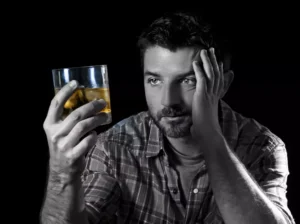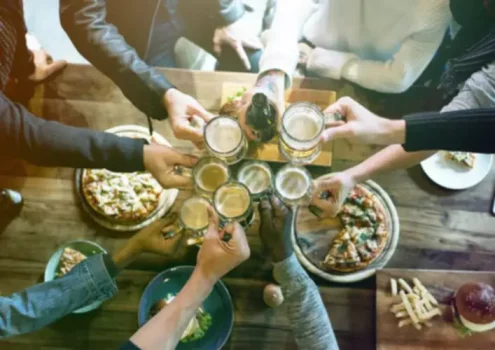
Dehydration and thirst are very commonly mistaken for hunger. Instead of reaching for a bag of chips next time you’re feeling hungry, have a large glass of water first. You can even add a splash of lemon or lime to the water to trick your mind into thinking this is a little treat. According to Carnell, dopamine likely plays a role in the boredom-hunger paradigm.

Why do I feel lonely after quitting drinking?

Finally, they declared both that they sometimes drank on an empty stomach and drove after having a drink. While binge drinking involves consuming a lot of alcohol over a short period of time, alcoholism is a physical and psychological dependence on alcohol that means you’re unable to function without drinking. Only about 10 percent of people who binge drink struggle with a dependence on alcohol. However, the more frequently you binge drink, the more at risk you are of developing an alcohol abuse problem. I’ve spent the last seven years researching and understanding alcoholism, addiction, and how people get sober.
Quitting Alcohol Timeline: What Happens When You Stop Drinking?
You might point out the effects that it’s having on their mood or physical health. Or you could let them know how it’s affecting your relationship. Studies show that binge drinking can affect your working memory, which is your ability to store short-term information and keep track of what you’re doing. Certain personality traits can make you more prone to engage in binge drinking. If you’re a highly impulsive person, you may be more likely to reach for another drink without stopping to think about the consequences.
Ketamine Withdrawal: How to Find Help and Support
You might occasionally consume several alcoholic beverages to blot out a highly stressful day. Drinking to relieve stress may veer into murky territory, if you feel that you must consume alcohol every day to de-stress. If you find yourself bored without alcohol or drinking simply because you’re bored, you might be developing an unhealthy relationship with alcohol. Regular drinking is often considered socially appropriate and normal, but if your drinking extends to when you’re alone, that’s a red flag. There’s a very fine line between social drinking and problematic drinking, and one could easily lead to the other and cause serious health implications. For some people, drinking alcohol is a big part of many social situations.

Why do you keep turning to food?
Forming healthy connections with other people is an important of this process. It’s one of the many ways you will relearn how to enjoy life again without alcohol. When I quit drinking, I was lucky to have a spouse that supported my decision.

Drinking to cope? Stress, boredom and alcohol use during COVID-19 lockdown
- If you are a male, excessive drinking is defined as 15 or more alcoholic drinks in one week and more than 5 drinks at one time.
- These stories remind us that boredom isn’t merely a state of inactivity or idleness — it can also be a time for reflection, creativity, and unexpected discovery.
- Serotonin depletion can cause major mood swings and feelings of sadness, anxiety, and irritability.
- I want this beer about as much as I want to do my laundry.
Saying something like, “Well, that’s my one drink for the night,” might help your loved one remember their own limit. Their volatile behavior and emotions might even have an effect on your relationship. Maybe your loved one has a tendency to say insensitive things while intoxicated, or perhaps they routinely drink and drive. Binge drinkers often have a harder time with tasks that involve impulse control, leading to reckless or dangerous behavior. Memory loss or fragmented memories of the previous night might leave you feeling uneasy or worried about your health. You might also worry about whether alcohol is causing permanent damage to your brain or heart health.
Our brain also becomes accustomed to the presence of alcohol and starts to see it as the “new normal.” So when there’s no alcohol, things seem a bit off. The brain starts to signal the craving for alcohol, not just to seek pleasure but also to restore what it perceives as normalcy. Often, being bored without alcohol seems intimidating because when there’s no task to put your mind to, you’re forced to notice the things that are making you unhappy. Owen Williams works for Recovery Cymru, supporting people who are concerned about someone else’s substance use. In this blog, Dr Matt Parker, Neuroscientist and Alcohol Researcher at the University of Portsmouth, discusses the impact of COVID-19 lockdown on alcohol use.
When you drink like this, you consume enough alcohol over the course of two hours to raise your blood alcohol concentration to the legal limit of intoxication (0.08 percent in the U.S.) or higher. That translates to about four or more drinks for an adult female or five or more drinks for an adult male. Sometimes pretending as though you’re eating is enough to fill the need to eat, especially when you’re not hungry. Chewing gum is a great replacement for eating food you don’t need to be eating. Tracing this back drinking out of boredom to eating out of boredom, Carnell added that it’s very likely that when we are bored or unhappy, our dopamine neurons are inactive.
- Alcohol can damage body tissues and interfere with your body’s ability to absorb nutrients and break down harmful chemicals.
- Over time, with regular alcohol consumption, our brain starts to adapt.
- Alcohol can be in a unique position of being both the solution to and the cause of pain.
#1 Remove Alcohol and Substances From Your Home
Remember that one of the things we’re attempting to do is not only get out there and experience fun activities that don’t involve alcohol but also heal the underlying damage in our brain from drinking. Volunteering is a great way to reconnect with your community. Helping others actually boosts our own mental health and feelings of self-worth. Plus, it helps us with our emotional sobriety and wellness.
- First, given the cross-sectional survey design, causality and mediation can only be inferred.
- We’ve all felt it — that nagging sensation of boredom.
- But if boredom causes you to indulge in dangerous behavior, like substance abuse or self-harm, the results are likely to be bad.
- It’s likely your doctor will order some bloodwork, which can be the start of your path to physical recovery.
- Stress due to the pandemic is especially significant, as those who reported feeling stressed also reported drinking more over more days, compared with others.
- If you must dig WAY back into childhood for this answer, then do that.
These effects can increase your risk of various types of cancer, including mouth, throat, esophagus, breast, liver, and colon cancer. Whatever your personality, though, there are steps you can take to modify your habits and take back control of your drinking. It’s easy for teens and young adults who aren’t sure how much alcohol they can handle to go past their limits.

